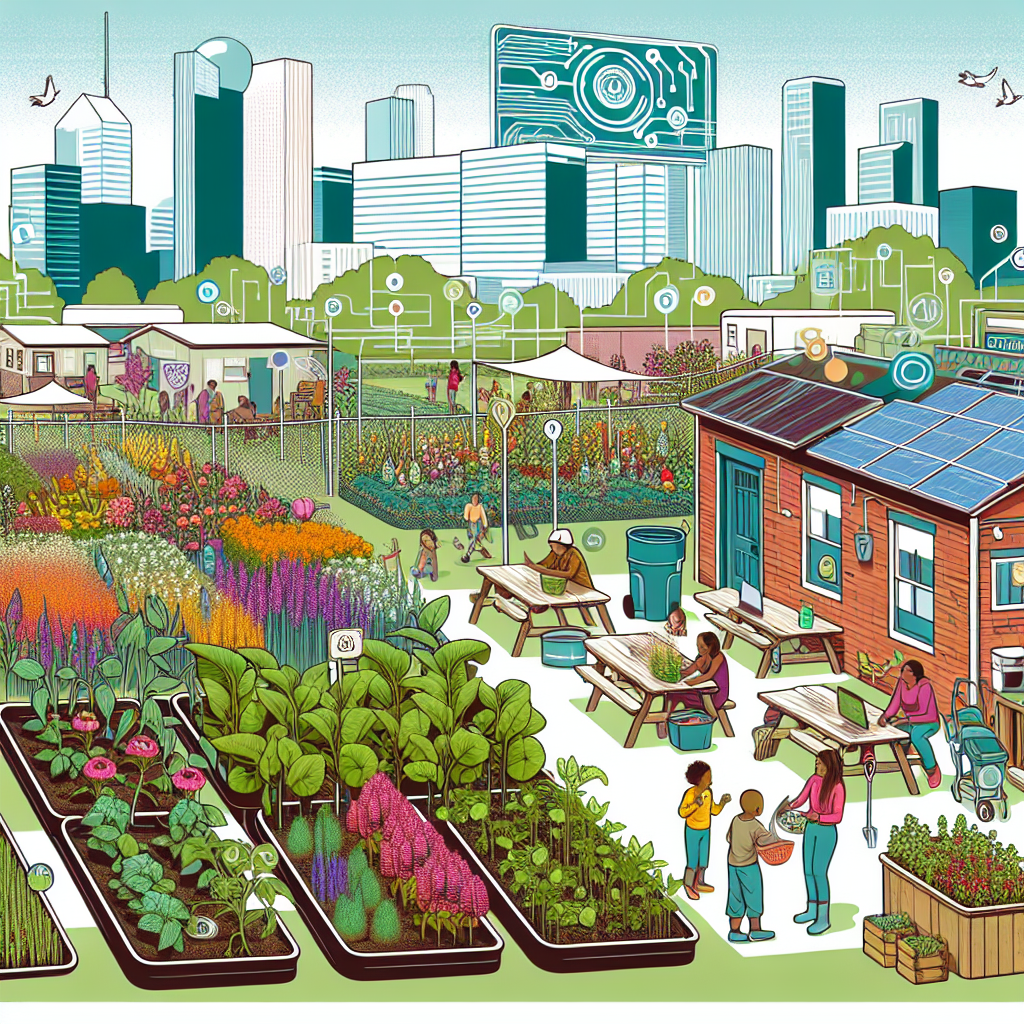Cultivating Community: The Rise of Urban Gardens in Denver
This article delves into the world of community gardens in Denver, exploring their benefits, successful case studies, best practices for starting and maintaining one, available resources, and the future outlook. Discover the economic, health, and social advantages of urban gardens, as well as practical tips for creating and sustaining a vibrant community green space.

Overview of Community Gardens in Denver
Community gardens have sprouted up across Denver, transforming urban landscapes into lush oases and vibrant hubs of community interaction. These shared spaces provide residents with the opportunity to grow their own produce, connect with neighbors, and foster a sense of belonging. As urban areas grapple with issues of food insecurity, access to green spaces, and social isolation, community gardens have emerged as a sustainable solution that addresses multiple challenges simultaneously.
Benefits of Community Gardens
Economic Value in Urban Areas
According to the American Community Gardening Association, community gardens can have a significant economic impact on local economies. By providing fresh produce to residents and reducing food miles, these gardens contribute to a more sustainable and resilient food system. Additionally, community gardens can revitalize neighborhoods, increase property values, and stimulate local economies through farmers' markets and other related activities.
Health and Wellness Benefits
Research has shown that community gardens offer a myriad of health benefits to participants. Engaging in gardening activities can reduce stress, improve mental health, and increase physical activity levels. Access to fresh, locally grown produce also promotes healthier eating habits and can help combat diet-related diseases such as obesity and diabetes. By fostering a connection to nature and promoting outdoor activity, community gardens play a crucial role in enhancing overall well-being.
Social and Educational Opportunities
Community gardens serve as dynamic hubs for social interaction and knowledge sharing. They bring people together from diverse backgrounds, fostering a sense of community and shared purpose. Gardening workshops, cooking classes, and community events hosted at these gardens provide valuable educational opportunities for both adults and children. By promoting environmental stewardship and sustainable living practices, community gardens empower individuals to make positive changes in their lives and communities.
Community Gardens in Denver: Case Studies
Success Stories from Different Neighborhoods
In the Cole neighborhood, the Cole Fusion Community Garden has transformed a vacant lot into a vibrant green space where residents come together to grow vegetables, flowers, and herbs. The garden has become a focal point for community gatherings and has strengthened social ties among neighbors. Similarly, the Westwood Unidos Community Garden in Westwood has empowered local residents to take control of their food supply and build a more resilient community.
Best Practices for Starting and Sustaining a Community Garden in Denver
Location Selection
Choosing the right location is crucial for the success of a community garden. Factors such as sunlight exposure, soil quality, and accessibility should be taken into consideration. Working with local government agencies and community organizations can help secure land tenure and navigate zoning regulations.
Community Engagement
Engaging residents from the outset and involving them in the planning and decision-making process is key to building a successful community garden. Hosting community meetings, conducting surveys, and collaborating with local schools and businesses can help generate interest and support for the garden project.
Sustainability and Maintenance
Ensuring the long-term sustainability of a community garden requires careful planning and maintenance. Implementing water-efficient irrigation systems, composting organic waste, and promoting biodiversity are essential practices. Recruiting volunteers, organizing workdays, and establishing clear guidelines for garden maintenance can help foster a sense of ownership and responsibility among participants.
Resources for Community Gardeners in Denver
Organizations and Programs
Several organizations in Denver support community gardening initiatives, providing resources, technical assistance, and networking opportunities. The Denver Sustainable Food Policy Council, Denver Urban Gardens, and Groundwork Denver are among the key players working to promote urban agriculture and food justice in the city.
Funding Opportunities
Securing funding for community garden projects can be challenging but not impossible. Grants, crowdfunding campaigns, and partnerships with local businesses or foundations can provide financial support. The City of Denver also offers grants and technical assistance to support community garden development and expansion.
The Future of Community Gardens in Denver
Potential Growth and Impact
As the demand for locally grown produce and green spaces continues to rise, the future of community gardens in Denver looks promising. These grassroots initiatives have the potential to transform neighborhoods, improve public health, and promote environmental sustainability. By scaling up existing projects, fostering collaboration among stakeholders, and advocating for policies that support urban agriculture, community gardens can play a significant role in shaping a more resilient and equitable city.
Conclusion
Community gardens in Denver offer a multitude of benefits, ranging from economic value and health improvements to social cohesion and educational opportunities. By following best practices, leveraging available resources, and actively engaging the community, aspiring gardeners can create thriving green spaces that enhance the quality of life for residents. The success of community gardens relies on collective action, shared responsibility, and a commitment to sustainability.
Call to Action
To ensure the continued growth and impact of community gardens in Denver, it is essential for stakeholders across sectors to collaborate, share knowledge, and advocate for policies that support urban agriculture. By prioritizing community health, food security, and environmental sustainability, we can cultivate a greener, healthier future for all residents. Let us join hands in nurturing our communities and fostering a culture of care and stewardship toward the land we share.